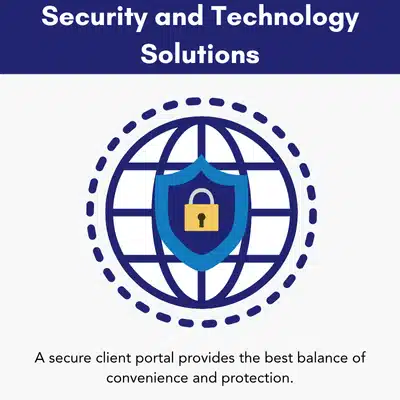
Getting important documents fast has never been more critical. Organizations across all sectors need effective methods to obtain records and record retrieval that scales. Whether you need patient chart retrieval for medical cases or documents for court proceedings, the right strategy saves time and money, including medical record extraction from an electronic health record.
The retrieval of records industry has grown rapidly. Data shows the global information sphere will hit 175 zettabytes by 2025. This massive growth creates new records retrieval challenges and data security concerns. At the same time, data breaches expose millions of records yearly, so HIPAA compliance and confidentiality matter. These factors make secure, efficient record retrieval essential.

The records retrieval process starts with identifying what you need and where it exists. Next comes submitting retrieval requests to record holders. This might include hospitals, government agencies, or private companies. Many situations require authorization requests or legal steps before release.
Modern healthcare providers store information in electronic medical record systems. Others keep paper records in filing cabinets. Each format presents unique obstacles. Digital files may need special data extraction tools. Physical documents require careful file handling and scanning.
Without proper planning, these tasks become chaotic. Organizations face delays, lost documents, and higher compliance risks. A clear workflow prevents these problems. It also improves records retrieval rates across all requests.
Smart organizations use technology to streamline operations. A centralized client portal manages requests from start to finish. Users can submit requests, check status updates, and download files when ready. This improves turnaround times while creating audit documentation trails.
Automation handles routine tasks that slow down manual processes. These tools send reminders to custodians and perform status checks. They also help with indexing received files. The result is better accuracy and faster processing of bulk requests.
Proper records organization matters after collection too. Professional services categorize files systematically. Software enables full-text search and tagging for easier records analysis later. Documents arrive ready to use instead of requiring additional sorting.

Court proceedings demand extra care with document handling. Records must meet admissibility standards to serve as evidence. Courts have strict rules about hearsay. The business records exception to the hearsay rule allows certain documents as evidence. These must be made and kept in regular business operations.
Your retrieval strategy should include custodian certification. This person attests to record authenticity and storage methods. Taking this step helps satisfy legal requirements. It prevents hearsay objections that could exclude important evidence.
Privacy laws add another layer of complexity. Medical records follow HIPAA guidelines. Financial documents have their own rules. Using proper legal channels protects sensitive information. This includes court orders, consent forms, and secure transfer methods. Following these steps reduces compliance risks throughout the process.
The discovery process in litigation involves tight deadlines. Having organized systems makes this phase more efficient. Poor preparation can result in incomplete disclosures or court sanctions. A subpoena may be needed to compel document release from uncooperative parties. Understanding when and how to use a subpoena saves valuable time.

Data security concerns have reached new heights. Cyberattacks target valuable information stored in record systems. Organizations must implement data security best practices at every step. This includes encryption during transfer and secure storage solutions for sensitive files.
The digitalization of records creates both opportunities and risks. Electronic systems allow faster access and better tracking capabilities. However, they also require stronger security measures. Record access controls prevent unauthorized viewing. Regular security audits identify potential weaknesses before problems occur.
A secure client portal provides the best balance of convenience and protection. Users get easy access while administrators maintain full control. Advanced platforms include features like automatic logout and access logging. These tools help meet regulatory requirements while improving user experience.
Healthcare providers benefit greatly from streamlined record systems through medical record extraction and clear record request orders. Hospitals coordinate care across multiple departments using a client portal for updates. Insurance companies process claims faster with organized documentation. The insurance industry relies on medical records, repair estimates, and accident reports for claim decisions.
Legal firms handle complex cases requiring documents from many sources. A data management challenge becomes manageable with the right tools, including a client portal to track record request orders. Private individuals also benefit when gathering family records or health histories. The same principles apply regardless of scale or industry.
Document retrieval services offer specialized expertise for complex cases. They understand regulatory requirements, address data security concerns, and have established relationships with record custodians. This knowledge speeds up the entire process while ensuring compliance.

Track key metrics to evaluate your strategy. Records retrieval rates show how often requests succeed. Processing times reveal efficiency levels. Error rates indicate quality control effectiveness. Regular measurement helps identify areas for improvement.
Client satisfaction surveys provide valuable feedback. Users can suggest features or report problems. This information guides future system upgrades and training programs. Continuous improvement ensures your strategy stays current with changing needs.
Stop wasting time chasing down documents and navigating complex privacy rules. We handle the heavy lifting so you can focus on what matters most. Our expert team combines nationwide reach with deep knowledge of regulations across all industries.
Our advanced client portal makes record retrieval simple and secure. Submit requests with just a few clicks. Track progress in real-time through our user-friendly interface. Download completed files instantly when ready. Military-grade encryption protects your sensitive information throughout the entire process.
We’ve helped thousands of clients retrieve millions of records successfully. Our established relationships with custodians nationwide mean faster response times. Our legal experts ensure every document meets admissibility requirements for court use.
Don’t let retrieval of records delays slow down your case or project. Contact us today to discover how our proven systems and experienced professionals can transform your document collection process. Get started with a free consultation and see why leading firms trust us with their most important record requests.
Records retrieval is the end-to-end process of identifying, requesting, collecting, and delivering documents from custodians like hospitals, agencies, or businesses. Done well, it reduces delays, lowers costs, and improves compliance and case outcomes.
Use correct authorizations, subpoenas or court orders, and obtain custodian certifications to satisfy the business records exception. Maintain a clear chain of custody and audit trail so records are authentic, admissible, and defensible.
A centralized client portal with automation handles requests, reminders, indexing, and real-time status updates to cut turnaround times. Encryption, role-based access, logging, and regular security audits protect sensitive data and meet HIPAA and other requirements.
Outsource when records span multiple providers, formats, or jurisdictions, or when litigation deadlines and compliance risk are high. Specialized teams accelerate responses, normalize mixed paper and electronic files, and deliver organized, searchable productions.
